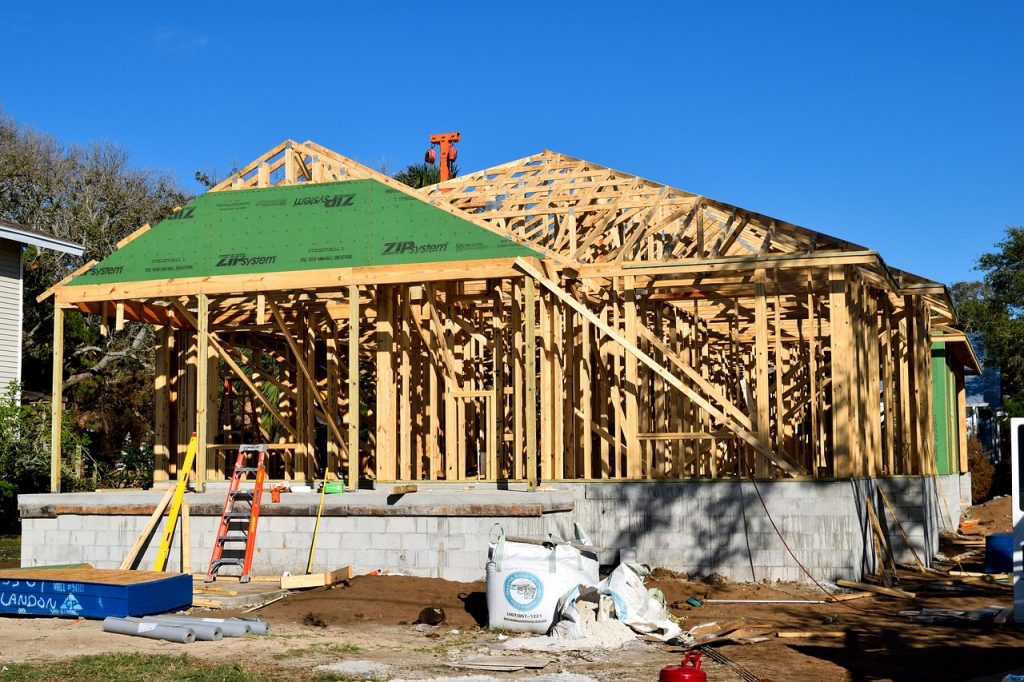Are you planning on renovating a house anytime soon? Renovation and remodeling a house is more than just perusing Pinterest boards. Most homeowners just explain their requirements and leave the rest to the contractors. This is definitely not enough if you are renovating a house. Contractors are experts in building but not in the choosing materials, finishes and furnishings for the remodel. This is where an expert in interior design and decor should be involved. The house belongs to you and you’ll be the one living in it so you should be involved in the entire renovation process.
After all, most of us only renovate a home once so it’s crucial to get all the details right the first time and prevent any mishaps that we might regret later.
Here are some must-do things before you hire a contractor and start on renovating a house.
Plan Ahead for Any Renovating Inconveniences
When renovations begin, the utility line in your house may need to be shutdown. If it’s a new house, it may not be connected to the utility line at all yet.
However, most of the construction work will depend on electricity. To overcome this problem, install a portable generator to provide enough power for the renovations.
This will serve you two purposes: it will provide power for the machines you need for remodeling as well as power up your house until it’s connected to the utility line. The generator will also serve as your backup power house in case of any electricity blackout. For a list of available options for generators view here.
Define Your Renovation Budget
No matter how small your renovation is, it’s important to know how much it’s likely to cost. More often than not, homeowners underestimate the costs.
They’re then left out of pocket and have to put the project on pause. A good rule of thumb is to always budget a little more than you’d expect. This way, you’ll always have extra cash in an emergency.
Another thing to keep in mind is to be realistic about your renovations. You don’t want to spend half of your budget on an expensive looking kitchen and then run out of money to renovate the other rooms.
It’s always a good idea to consult an architect or contractor to let you know what will be feasible for your remodeling budget.
Decide How to Finance Renovating A House
If you’re doing a small scale renovation, the costs may be easier to cover. However, the problem arises in large scale renovations.
Even if you have the means, it’s wise to have a backup method if things go wrong. Home equity line of credit, home equity loan, savings (cash), or personal loans are some ways of financing your project.
Install a Key Lock Box
If you’re renovating before moving into your house, having a key lock box will save you from making multiple trips to your house to open the doors for the people working there.
This is especially true if you live far away from your new house or when you’re at work. The lock box will save you time, fuel and painful early morning wake-up calls.
Spend Time in the Renovated house
The pastel wall color might have looked great on Pinterest but you may change your mind when you see it in situ. Many ideas look great on paper, however, they fall apart in reality.
It’s important to determine whether the wall color, furniture and other household accessories that you have painstakingly picked out actually work together. The only way to ensure this is to live in or frequently visit the house from the early stages of renovation.
Then, you can make any changes early on and save yourself from any potential disappointments after moving in.
Interview Multiple Remodeling Contractors
This point cannot be stressed enough. Contractors can be difficult people to deal with and there have been multiple accounts of homeowners being swindled out of money by shady contractors.
The first thing you need to do is set up a clear contract with your contractor about the scope of remodeling work. If the contractor is being unwilling or dismissive of the contract, consider this as a red flag and look for another contractor.
Ensure that the company’s name, address, phone number, the start and completion dates, as well as the estimated costs are included in the remodeling contract.
Keep the Right of Rescission in mind. This means you have three legal business days to cancel your contract if you sign it away from the place of business.
Put the cancellation in writing and mail it to have it postmarked by the third business day. Then, make a copy of it and keep the contract and the warranty yourself.
Obtain Renovation Permits and Certifications
If you’re doing a large scale renovation, chances are you’ll need a permit from your local municipality. This will prevent your project from being halted halfway through. Permits can be costly so be sure to include them in your budget.
Here are some of the renovations you’ll need a permit for:
- Buildings such as a garage or a guest house
- Patios, decks, fences, windows or other extensions
- Interior renovations or large scale exterior changes
- New electrical or plumbing lines
Never Pay in Full or Upfront
Discuss all the costs involved in the renovation project in detail with your contractor and determine the reason for any variations in price. Going for the lowest price isn’t always a wise decision as that could lead to a compromise in material quality and subcontracting professionals.
You should never pay the full amount ahead of the project. Pay only after the work has been completed to your satisfaction. Also, make sure that you pay with a credit card, not cash, if possible so that you have a record of the transaction.
If you must pay anything beforehand, one-third of the pay is sufficient and pay the rest in installments.
Confirm Your Contractor’s Insurance
The worst thing that can happen to an ongoing construction is an unfortunate accident or a sick contractor or laborer. So it’s important to make sure that they are insured for any property damage or accidents. Make sure that you verify their insurance claim with the agency.
Expect the Unexpected When Renovating A House
Despite taking adequate precautions, delays or accidents are inevitable in a renovation project. Being mentally and financially prepared for unforeseen circumstances will help you tackle them easily.
One of such things you should expect to change is the renovation timeline. Be prepared for it taking longer than estimated.
Conclusion
Creating a dream home requires a lot of hard work and tough decisions. But, by being prepared and well-informed, you’ll be able to handle anything.
Keep your budget in mind, hire a reliable contractor, compare your expected house set-up with the real one and try to keep your cool during the project (you’ll need it!)
Once your house becomes the home you’ve always dreamed of, it will all be worth it. So, sit back and marvel at your hard work – you’ve earned it!
This post is a collaboration and may contain relevant affiliate links. All opinions are our own and for informational purposes only.




